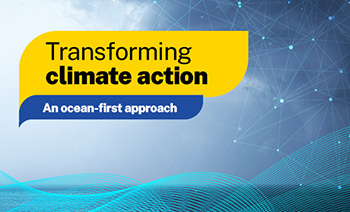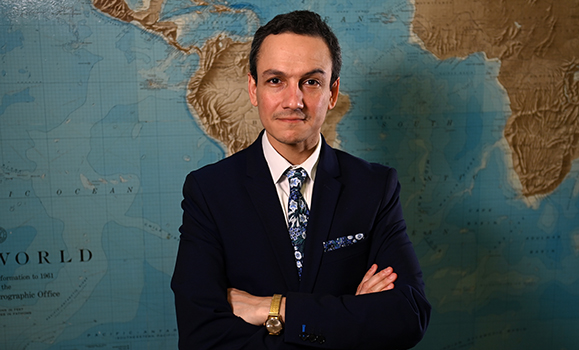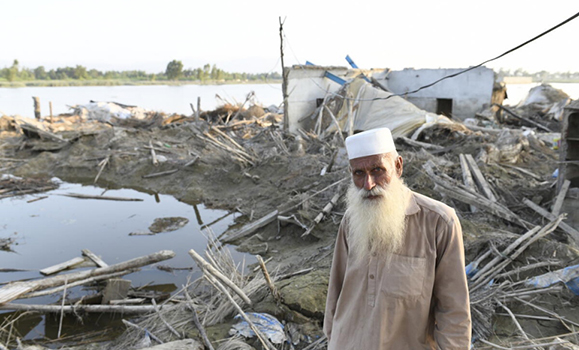Each time Dr. Kiran Banerjee presents on the topic of forced migration he knows he must update his notes to reckon with the increasingly grim reality of the situation. In a matter of months, the numbers of the globally displaced leap by millions.
“Unfortunately, a word I repeat frequently in my work is unprecedented. We’ve crossed the 100-million-mark for the number of people currently displaced in the world, according to the United Nations High Commissioner for Refugees (UNHCR). It’s an incredibly significant number in terms of the global population which is affected by displacement at this point.”

Syrian refugees arrive at Bardarash camp in Duhok, the Kurdistan Region of Iraq © UNHCR/Hossein Fatemi
A stark future awaits
By the end of 2021, the number of forced migrants amounted to the fourteenth largest country on Earth, equivalent to one per cent of the world population, and well over double the total population of Canada. The UNHCR's most recent global trends report indicates that one in every 74 people on Earth has been forced to flee.
Dr. Banerjee points to the civil war in Syria, a conflict spurred in part by drought, and the flooding in Pakistan that left hundreds of thousands homeless, as recent examples of climate-induced forced migration. He says these are just the first signs of a situation that threatens to overwhelm the world if we don’t begin to contend with the increasing pressures of extreme weather and conflict over scarce resources sparked by climate change.
Transformational Climate Action

Emerging science reveals the ocean's ability to absorb CO2 and regulate temperatures is changing in ways we don’t understand. These critical shifts are not accounted for in climate targets – a risk we can no longer take. With support from the Canada First Research Excellence Fund, Dalhousie is leading an ocean-first approach to tackle climate change and equipping Canada with the knowledge, innovations, and opportunities to secure a positive climate future.

Dr. Kiran Banerjee.
“The future climate-induced challenges that we can see require a truly global response and we really have nothing in place in terms of formal mechanisms.”
Building on a tradition of Canadian leadership
Dr. Banerjee says that Canada’s past leadership provides the country with an opportunity to advance and mobilize new policy frameworks focused on future impacts of global warming.
“As one of the world’s largest re-settlers of refugees, Canada is positioned very well to speak with moral authority toward the need for increased governance, increased international cooperation, and increased global solidarity,” he says.
“But of course, there is a need to ramp-up this thinking quickly because the projections regarding climate-induced migration are at a scale of magnitude that far exceeds anything we’ve seen thus far.”

Refugee in Pakistan’s north-western Khyber Pakhtunkhwa province before it was swept away by flooding. © UNHCR/Usman Ghani
Informed by climate science
Dr. Banerjee says that connecting his research to Dalhousie and its partners’ Transforming Climate Action research program will allow him to make policy recommendations informed by the latest climate science.
Scientists engaged in the Transforming Climate Action aim to use an unprecedented data-driven approach to track the ocean’s changing ability to absorb and sequester carbon. Current, global carbon reduction targets anticipate the ocean to remain unchanged as Earth’s most important carbon sink. It’s a significant risk as recent science shows dramatic deviations are afoot.
“The work being done by my more STEM-minded colleagues can provide a framework for understanding how urgent it is to develop new policies and mechanisms to contend with climate induced migration. It will clarify the severity of the events that we’ve had and how limited our predictive capacity has been up to now,” says Dr. Banerjee.
“Ideally, we want to develop long term frameworks based on science for something that is going to become only a more enduring aspect of global politics.”

